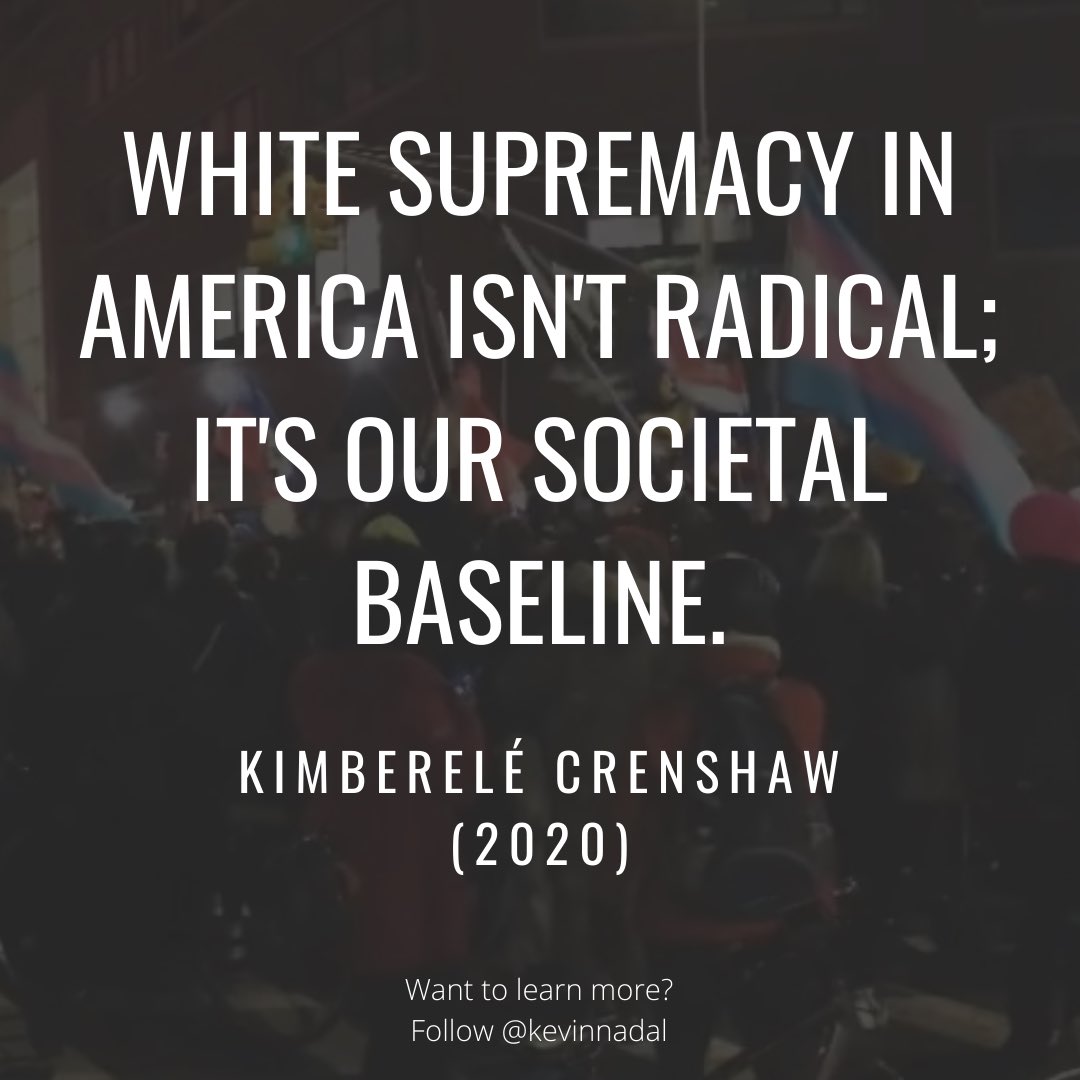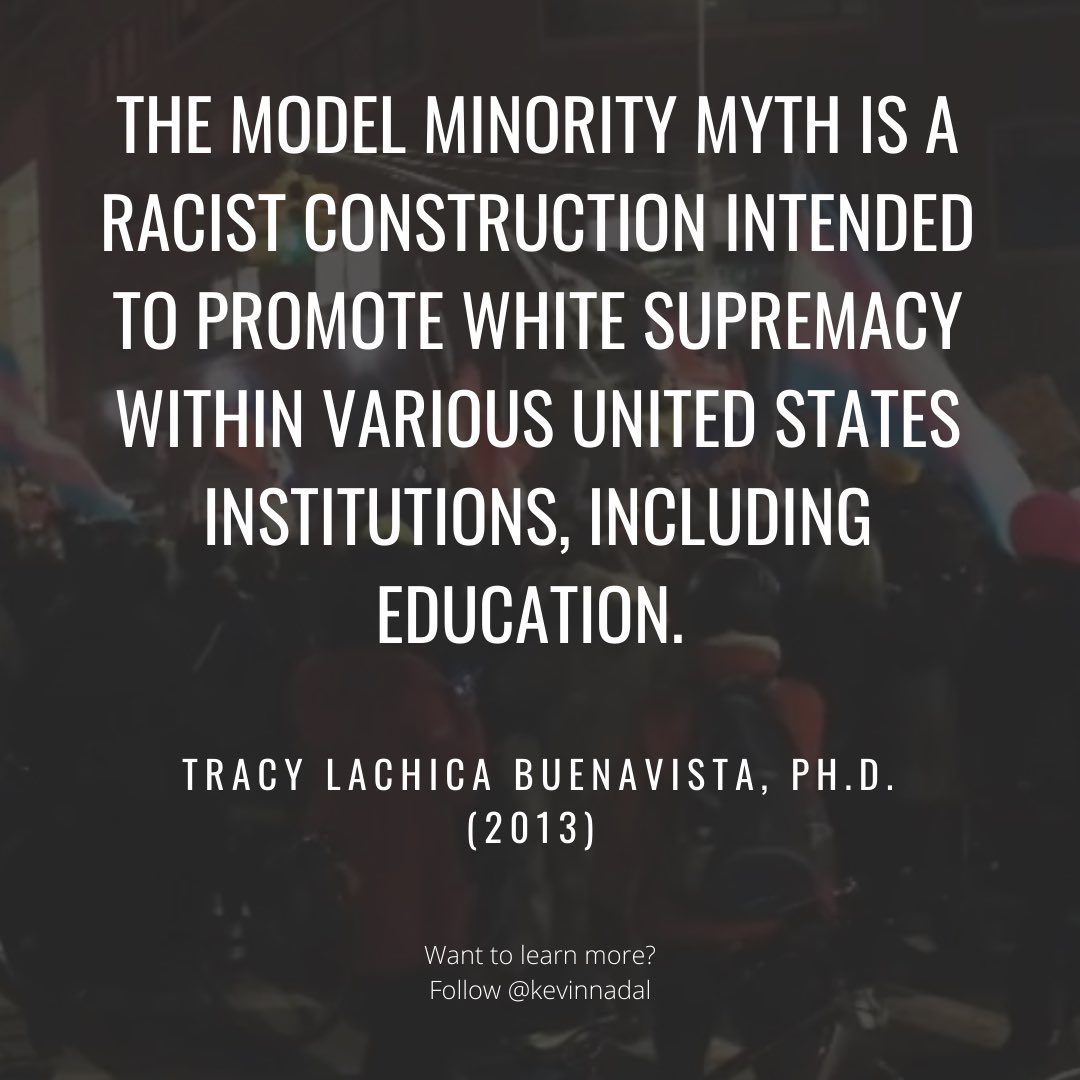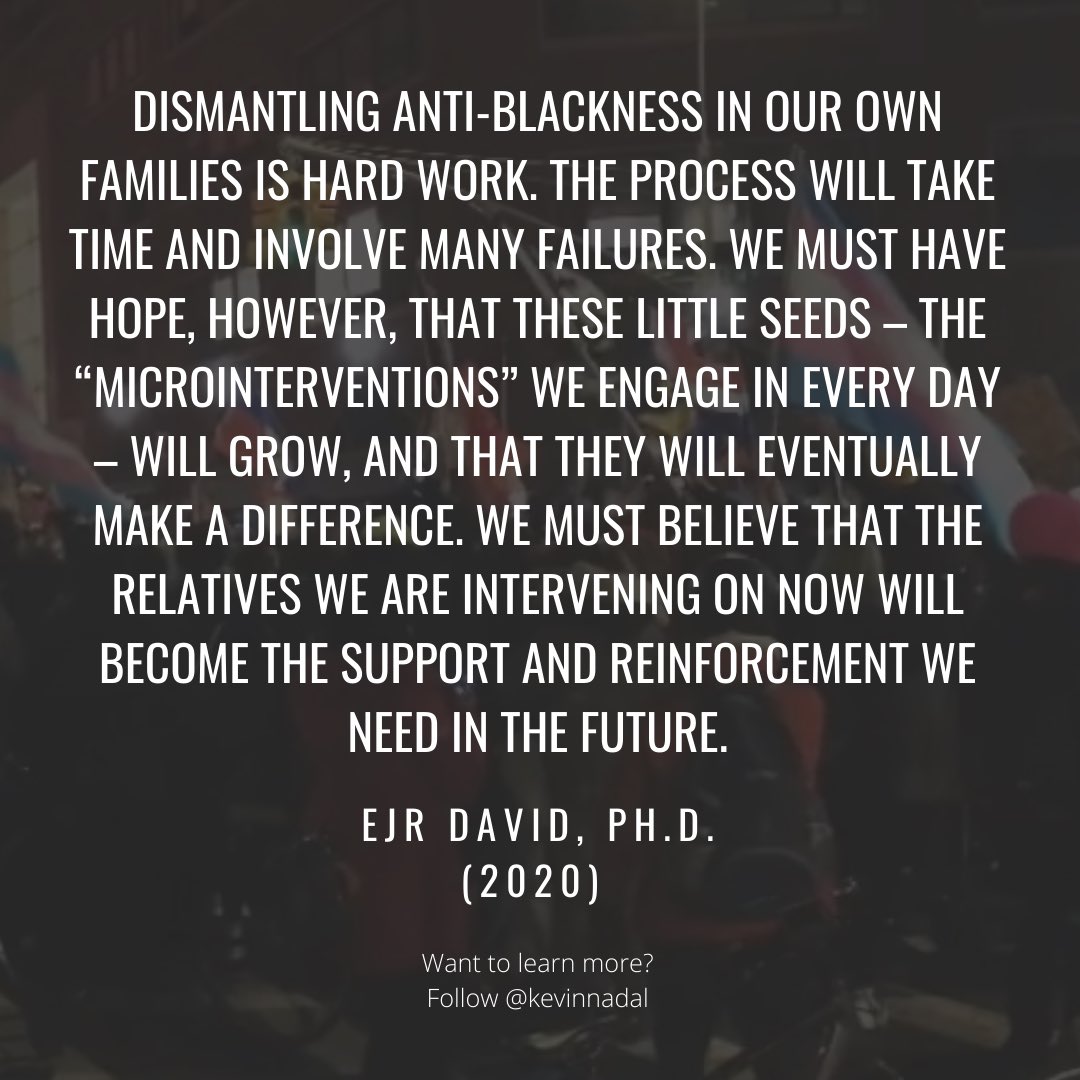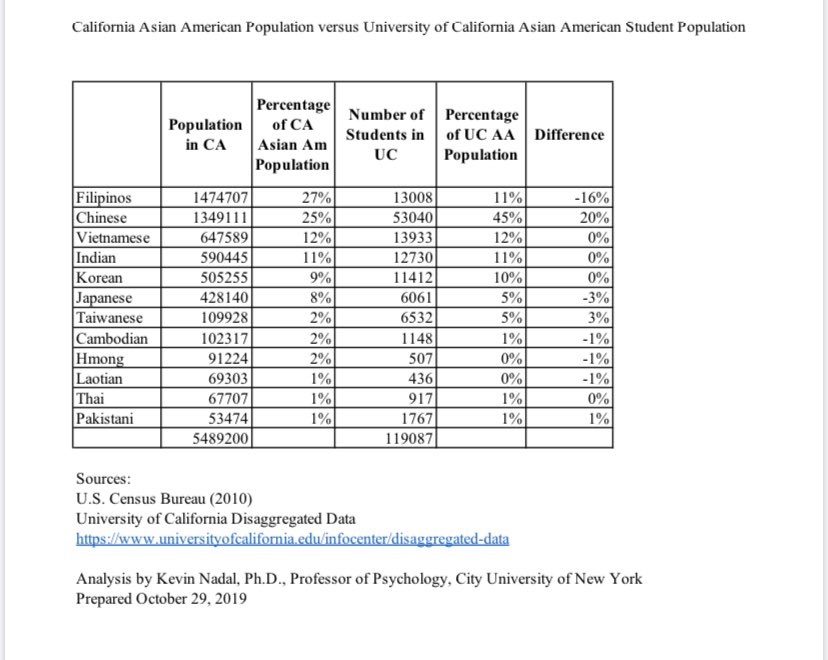
It is clear some people are not aware of some core concepts many scholars in fields like #EthnicStudies, #CriticalRaceTheory, #QueerStudies, or #MulticulturalPsychology have been writing about for DECADES. So, here are some graphics I hope are helpful in your learning processes. 



Some key takeaways:
1) White supremacy is a system that our country is founded upon. The US was established on stolen indigenous lands, and the country’s various structures were built from/by/through the labor of people who were enslaved and violently forced to do so.


1) White supremacy is a system that our country is founded upon. The US was established on stolen indigenous lands, and the country’s various structures were built from/by/through the labor of people who were enslaved and violently forced to do so.



2) The Model Minority Myth was created (& has been perpetuated) to pit racial/ethnic minority groups against each other. It is also a Myth many Asian Americans internalize to be the truth- not recognizing that it is actually harmful to large subsets of the pan-ethnic community. 



3) Colonial mentality is tendency for colonized people to side w/ the colonizer/oppressor, instead of siding with the colonized/oppressed. Many BIPOC have internalized so much that their automatic inclination is to view everything White as good & everything else as bad. 



4) Anti-blackness is perpetuated systemically & individually. When people equate Blackness w/ all negative qualities (e.g., assumptions of criminality or intellectual inferiority), they are merely demonstrating the socialized messages they have been taught throughout their lives. 



As an educator, I have to believe that more discussions, readings, trainings, and sharing of personal experiences - especially from historically marginalized peoples- can result in more learning, empathy, and growth.
#BlackLivesMatter #BrownAsiansExist #FightThePower #StayWoke

#BlackLivesMatter #BrownAsiansExist #FightThePower #StayWoke


• • •
Missing some Tweet in this thread? You can try to
force a refresh




